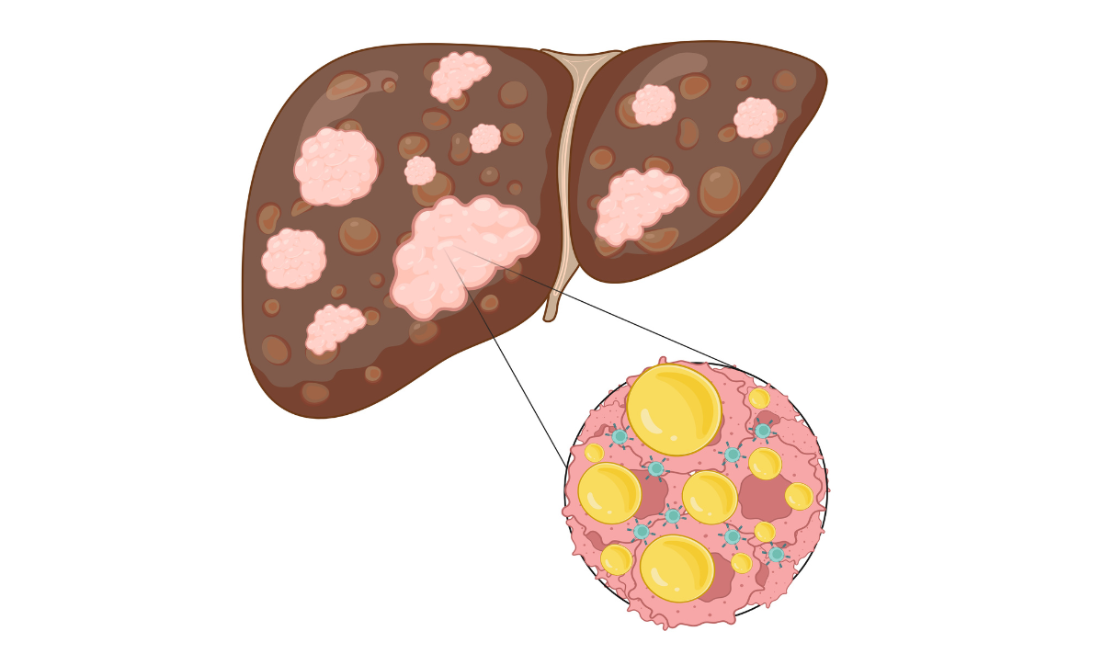McMaster research offers promising new treatment for liver cancer

The discovery opens new possibilities for slowing tumour growth and empowering the body’s natural defences. Currently, fewer than one in five people with liver cancer survive longer than five years.
BY Adam Ward, Faculty of Health Sciences
July 31, 2025
Liver cancer cells thrive on fat, posing a serious risk of cancer diagnosis for millions of people living with fatty liver disease. But researchers at McMaster University, in collaboration with Espervita Therapeutics, have developed a promising treatment that helps the immune system attack and destroy these tumours.
The discovery, detailed in a study published in Nature this week, opens new possibilities for slowing tumour growth and empowering the body’s natural defences. Current treatments for liver cancer are not very effective, with fewer than one in five people surviving longer than five years.
“This is one of the first studies to show that targeting metabolism in tumours can enable the immune system to kill liver cancer cells, and opens the door to more effective prevention and treatment strategies for this deadly disease,” says senior author Gregory Steinberg, co-director of the Centre for Metabolism, Obesity and Diabetes Research at McMaster.
Researchers focused on an enzyme called ATP citrate lyase (ACLY), which plays a key role in converting sugar into fat, and designed a drug that inhibits or “switches off” the enzyme selectively in the liver. The result was promising: Tumours were detected and killed.
Even more exciting for the researchers was an unexpected discovery that the immune response was not triggered by the widely-known cancer-fighting T cells, but by their lesser-known cousin: B cells.
“While T cells are widely recognized for their role in fighting cancer, the contribution of B cells has been less well understood. Our findings highlight a novel and previously underappreciated connection between cancer metabolism and B cell-mediated tumour immunity,” says Jaya Gautam, lead author and a research associate in McMaster’s Department of Medicine.
Fatty liver disease, formally known as metabolic dysfunction-associated steatotic liver disease (MASLD), affects approximately eight million Canadians.
Of those, 20 per cent will develop metabolic dysfunction-associated steatohepatitis (MASH), a specific and more severe form of fatty liver disease that dramatically increases the risk of developing liver cancer.
The drug that inhibits the ACLY enzyme is called EVT0185, and was administered in mice with MASH and liver cancer. Mice that were given the drug had fewer tumours that were more vulnerable to attack by immune cells, particularly B cells.
Researchers note more work is needed to better understand how blocking ACLY in tumours enhances the effects of the immune system, and if a similar B cell-driven response could occur in humans and other types of cancer.
The study was supported by the Canadian Institutes of Health Research Foundation Grant and Espervita Therapeutics, of which several of the authors are shareholders.


